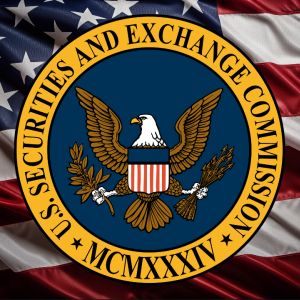US SEC reveals that proof-of-stake networks do not constitute securities transactions
4 min read
The U.S SEC’s Division of Corporation Finance clarified Thursday that proof-of-stake blockchain protocol staking activities are not considered security transactions within the scope of the federal securities laws. The Securities and Exchange Commission (SEC) said the Division’s remarks apply to persons who self-stake certain covered crypto assets on a PoS network. Proof-of-stake network mechanisms are structured to incentivize users to voluntarily coordinate and cooperate to secure the network. The U.S SEC noted that uncertainty about regulatory views on staking discouraged Americans from doing so for fear of violating securities laws. The agency said the uncertainty also constrained participation in network consensus and undermined the decentralization, censorship resistance, and credible neutrality of PoS blockchains. U.S SEC aims to provide clarity for digital asset stakers in the U.S. 1/ Today the @SECGov issued guidance on activities involving “staking” / proof-of-stake consensus mechanisms. As in its POW/mining guidance, the SEC affirmed that participation in protocol staking activities does not require registration under the securities laws. pic.twitter.com/zArQ5lz8KD — Rebecca Rettig (@RebeccaRettig1) May 29, 2025 The Division of Corporation Finance acknowledged on May 29 that proof-of-stake blockchain staking activities are not considered security transactions within the confines of the federal securities laws. The U.S SEC noted that the Division’s statement aims to provide clarity for stakers and staking-as-a-service providers in the U.S. The agency also mentioned that the Division’s remark applies to persons who self-stake certain covered digital assets on a proof-of-stake or delegated PoS network. The SEC’s statement also applies to non-custodial and custodial staking-as-a-service providers that facilitate PoS staking on behalf of others. According to the U.S SEC , the statement explains that pairing certain ancillary services with non-custodial or custodial staking services does not make providing staking services a securities offering. The government entity also noted that ancillary services include the provision of slashing coverage, which allows digital assets to be returned to a staker before the end of the protocol’s unbounded period. The provision also delivers earned rewards based on an alternative rewards payment schedule and in alternative amounts. The Division added that slashing coverage aggregates stakers’ virtual assets together for the purpose of satisfying a network’s minimum staking requirements. “I expect that the Division and Crypto Task Force will continue to develop views about security status for other activities, products, and services involving participation in network consensus.” – Hester Peirce , Commissioner of the Securities and Exchange Commission. Chief legal officer at Jito Labs Rebecca Retting argued that the SEC’s conclusion cleared the path for crypto exchange-traded funds to include staking in their products. The SEC has been making efforts to offer more clarity to crypto regulation since the departure of former Chair Gary Gensler. During Gensler’s reign, the agency had taken issue with staking services from Kraken, Coinbase, and Metamask. U.S SEC says PoW doesn’t implicate U.S. securities laws Since President Donald Trump took office in January, the agency has dropped enforcement actions against major crypto industry players and re-examined rules affecting the crypto space. Republican acting Chair Mark Uyeda has also created a crypto task force to be led by fellow Commissioner Hester Pierce. SEC Commissioner Caroline Crenshaw noted that it has been four months since the launch of the agency’s Crypto Task Force, which she believes will deliver a clear regulatory framework. Crenshaw argued that the SEC’s approach doesn’t promote clarity but continues to sow uncertainty around what the law is and what parts of it the Commission is willing to enforce, which she said is bad for investors and the markets. The SEC’s Division of Corporation Finance also clarified on March 20 that proof-of-work mining activities are not considered securities activities. The agency added that it’s the Division’s view that participants in mining activities do not need to register transactions with the Commission under the Securities Act or fall within one of the Securities Act’s exemptions from registration in connection with mining activities. The agency referred to the Howey Test – 1945 U.S. Supreme Court case frequently cited by the U.S SEC to determine if an asset qualifies as an investment contract and, therefore, a security – to form its conclusion on Thursday. The Commission argued that a miner’s self-mining is not undertaken with expectations of profits to be derived from the entrepreneurial or managerial efforts of others. The SEC believes that rather, a miner contributes its computational resources, which secure the network and enable the miner to earn rewards. The agency added that mining pools do not expect profits, just like mining. KEY Difference Wire : the secret tool crypto projects use to get guaranteed media coverage

Source: Cryptopolitan



